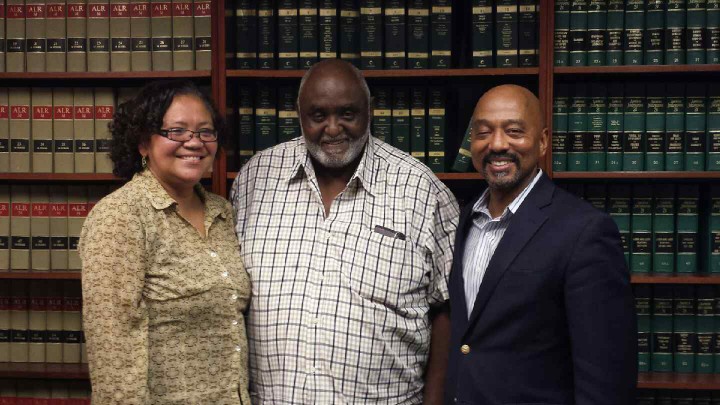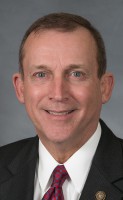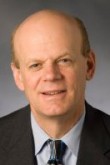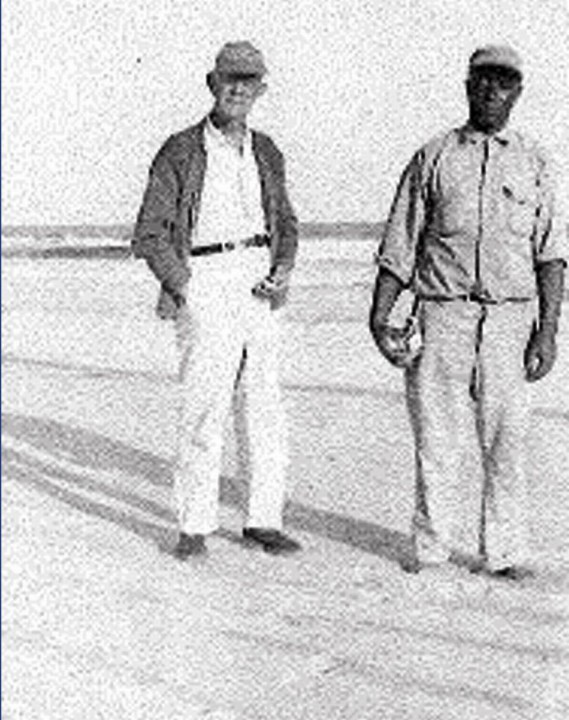This story was reprinted from the Tideland News.
Attorneys have closed on a deal that adds 290 acres to a state park in Swansboro, ends years of court wrangling and makes millionaires of an Onslow County man and his sister in Raleigh.
Supporter Spotlight
“To be honest, it’s been going on for so long, I don’t think it’s really set in yet,” said John L. Hurst of the closing that transferred the land he and his sister, Harriet Hurst Turner, acquired in a court settlement last year to Hammocks Beach State Park. “But I think it’s a good thing.”

Hurst, 59, and Turner will get $10.1 million from sale of the land. He said last week that doesn’t plan to quit his job as a supervisor at an Onslow County trash collection site. Hurst said he’s a happy man, and not just because of the money.
He and his sister, he said, are also happy that eight and a half years of legal disputes ended with an agreement and a sale that fairly compensates them, gives Turner the chance to start a 27-acre camp for children and ensures that “the public will always be able to enjoy this land and there won’t be a lot condos there.”
Everyone involved were also left smiling, from the Hursts’ attorney, Charles Francis of Raleigh, to David Pearson, president of Friends of the Hammocks and Bear Island, the park’s volunteer support group. Francis called the legal proceedings the “longest and perhaps most strenuous court battle” in his 26 years as a lawyer.
“This was a nearly nine-year litigation that took perseverance and staying power,” said Francis “At every turn there was a new obstacle to getting Harriet and John the compensation they deserved for their family’s land and legacy. I am pleased we succeeded in defending their property rights and Harriett’s dream for a camp.
Supporter Spotlight
“But,” Francis added, “The family and I are also very pleased that the park will be able to expand and that the public will be able to enjoy this property. Harriet and John love Onslow County and the Hammocks and are happy that they are now able to share it with others.
Francis also praised the Conservation Fund, which bought 90 of the 290 acres for $3.1 million. The fund is expected to work with the state parks system over the next couple of years to allow the state to buy the fund’s land. The state bought the rest of the land from Hurst and his sister with money from the state bonds and from the Parks and Recreation Trust Fund.

State Sen. Harry Brown, R-Onlsow, was instrumental in getting the state’s portion of the deal, Francis said. “He just made it happen,” Francis said. “About one-third of this money came from the trust fund, and another third, roughly, came from the two-thirds bonds that Sen. Brown got into the state budget. I can’t say enough about Sen. Brown.”
Brown said he was pleased. “This will make Hammocks Beach State Park one of the premier, if not the premier, parks in the state,” he said. “It will create more water access for visitors and boaters while preserving our environment. It will also create an opportunity to establish an education environment for students across the state.”
“Halleluiah and amen,” added Pearson, who helped start the long, arduous process more than 20 years ago. “It’s been a long ordeal, but it turned out to be a win-win. Everyone benefits,” he said. “There were times that I had doubts that this would become part of the park, but throughout the whole process, I also always felt there was a good chance it could turn out this way. You don’t give up.”
The acquisition represents about a 25 percent increase in the total size of the park and close to a 1,000 percent increase in the mainland area, where the visitor’s center is located.
Bill Holman, state director for the Conservation Fund, was as excited as Pearson. “I think this will transform Hammocks Beach State Park and provide the public a lot more year-round use and new activities,” he said. “There is really no other piece of land like this one in the area.”

The acquisition of the mainland property, some of it along Queens Creek, means that eventually there should be camping opportunities at the park for a folks who are not up to the rigors of camping on the island.
The next step, Pearson said, is to update of park’s master plan, which was last done in 1991. He said he doesn’t know if the state Division of Parks and Recreation will do that in-house or contract it out, but he and Holman stressed the public will be involved. The update also will deal with Jones and Huggins islands, which were added to the park after 1991.
Hurst, who plans to help several churches with his money, and also will aid his sister with the camp plan, said he hadn’t given much thought to being involved in the planning for the park, but said it was something he’d consider because he remains emotionally attached to the land and wants to see as much of it as possible remain a pristine place, where visitors can use trails and see and learn about the plant and animal life that abounds.
Pearson agreed. He knows there will be pressure from some to develop things like an RV Park, but he hopes that most in the community will want to keep “The Hammocks” as natural as possible. There should be “primitive” camping areas, he said, and at least one large campground suitable for major events by Boy and Girl scouts or other groups.
Above all, Pearson said, he wants the people of Swansboro and environs to have a big say in what happens. “This was all for the community,” he said. “It’s going to mean a lot.”
How Harriet Hurst Turner Hopes to Spend Her Millions
Onslow County native Harriet Hurst Turner has lived in Raleigh for 22 years, working as a paralegal for the Social Security Administration, and her heart’s been in her job.
“I like to do things to help people,” she said.
But now Turner gets to bring her big heart home and help children, the opposite end of the age spectrum from those on Social Security.

She’s planning on creating a children’s camp, thanks to the $10.1 million she and her brother, John Hurst of Onslow County, will split from the sale of 290 acres along Queen Creek to the state. The land will be added to Hammocks Beach State Park, and Turner will lease 27 acres for her camp as part of the sale.
“I want it to be an affordable camp, for people who can’t maybe afford the bigger camps (on the coast),” she said. “I saw somewhere where they used the word ‘disadvantaged,’ but I don’t like that word, especially for children. I just want it to be a camp people, local people and others, can afford.”
The goal is to have a day camp, at least, up and running within three years. Turner envisions kids and counselors hiking and boating on the pristine property, learning not only about plants and animals but also learning values. And this property is perfect for it, she said.
“I grew up on that land, and I still have a home there – I go back and forth – and it’s my haven,” she said. “It’s a jewel, just water and woods. I think it will be a great place for children.”
It has, of course, been a great place for children before. Future Farmers of America and 4-H operated camps there for years, but they’ve fallen into disrepair and have been vandalized. Getting it up and running again will take time and money. Turner now has the latter and plans to use it. She said she has what it takes to stay the course.
“I saw where our attorney (Charles Francis) called me ‘stubborn,’” she said. “That’s true. But I’d prefer ‘determined.’”
She also says she’s capable of being intensely focused, a quality that was necessary during the long legal battle that enabled her and her brother to get compensated fairly for the property passed down from their grandparents.
“It was hard,” she said. “But I had tunnel vision. This was our dream. This was my dream. People tell me I can’t save the world all by myself, but I tell them I’m going to do the best I can.”
Turner knows she’s going to need help with her dream. It’s expected to cost several million dollars just for the buildings to house, first, a day camp and eventually an overnight summer camp.
And Turner knows that this – the camp and making the land a part of Hammocks Beach State Park – is right.
“I know for a fact that my grandparents (John and Gertrude Hurst, who were given the land by the original owner, William Sharpe) and Dr. Sharpe are happy,” she said. “I kept that in my head all through this. That was the goal.”







